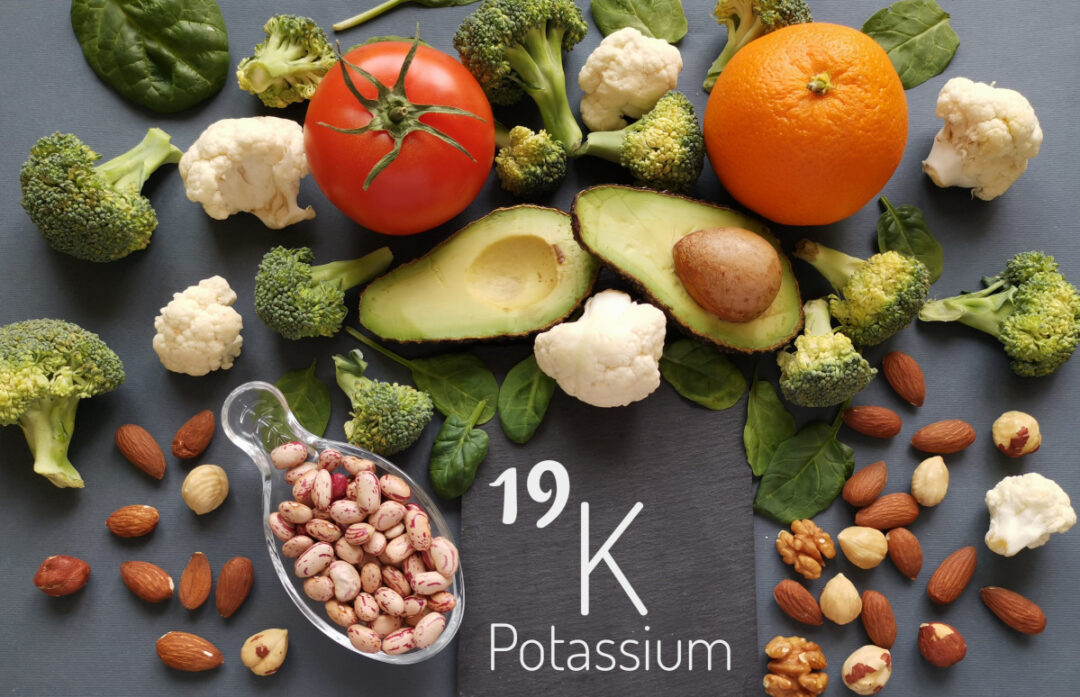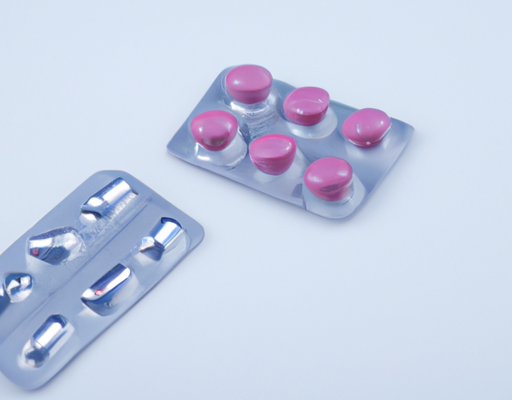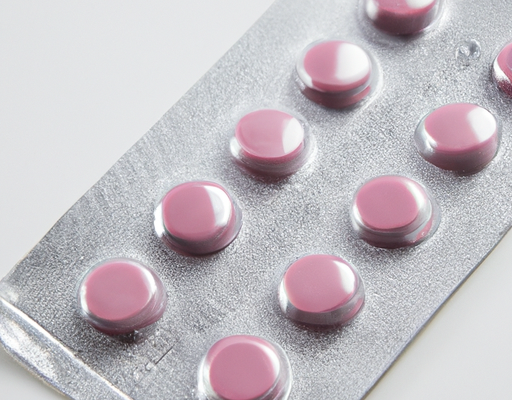Potassium is an intracellular element that regulates the acid-base balance of the blood. It is believed that potassium has protective properties against the undesirable effects of excess sodium and normalizes blood pressure. The element plays an important role in intracellular exchange, regulation of water-salt balance, osmotic pressure, and acid-base state of the body. It is necessary for normal muscle activity, in particular the heart, participating in the conduct of nerve impulses to the muscles. One of the most important properties is the excretion of water and sodium from the body. It also activates a number of enzymes and participates in important exchange reactions. Potassium activates such enzymes as acetyltransferase, hexokinase, and aminoacyltransferase. In enzyme systems where potassium acts as an activator, sodium is an inhibitor.
The norm of potassium
All microelements are important for the normal and full functioning of the organism. Their excess or deficiency can be the cause of malaise and various diseases. But among them potassium stands out the most. If there is too little or too much of it, a number of negative consequences appear.
It is necessary to monitor the change in potassium content in the body. Its norm in the blood is:
- infants – from 4.1 to 5.3 mmol/l;
- children up to 14 years old – from 3.4 to 4.7 mmol/l;
- adults – from 3.5 to 5 mmol/l.
The role of potassium in the body
The role of potassium in the body depends on the levels of the micromineral, as it regulates vital processes:
- It regulates the work of the heart;
- It helps to eliminate the negative consequences of eating a lot of salty products;
- It reduces the risk of cardiovascular diseases;
- It helps to maintain an alkaline environment in the body;
- It increases bone density;
- It supports the work of the kidneys and adrenal glands;
- It reduces the pressure;
- It reduces the risk of coronary heart disease and stroke;
- It contributes to muscle strengthening;
- It improves cell metabolism;
- It normalizes the exchange of substances;
- It reduces the risk of allergic reactions;
- It contributes to reducing edema;
- It regulates water balance. The normal level of potassium in adults is from 3.5 to 5 mmol/l.
Symptoms of potassium deficiency
If a number of characteristic signs are detected, it is necessary to consult a doctor. Delay in treatment can lead to a significant potassium deficiency and deterioration of the condition.
Gastrointestinal tract dysfunction:
- nausea;
- vomiting;
- gastritis;
- small ulcers;
- spasms;
- abdominal swelling;
- constipation.
Vascular dysfunction:
- vasospasm;
- increased pressure;
- arrhythmia.
Changes in SNS function:
- changes in pulse;
- dizziness;
- fainting.
Muscle dysfunction:
- muscle weakness;
- increased fatigue;
- spasms;
- cramps.
Nervous system dysfunction:
- irritability;
- mood swings.
Skin, epidermis:
- skin peeling, becoming dry;
- small cuts and wounds heal slowly, leaving scars.
State of the body when the potassium level is lowered or raised
If the potassium level in the body is outside the normal range, specific conditions may develop.
- A potassium level below 2.5 mmol / l is considered life-threatening and can lead to hypokalemia.
- If its content exceeds the upper threshold – 5.2 mmol / l, hyperkalemia occurs.
The manifestations of low or high potassium levels at an early stage are usually weakly expressed. This complicates the detection of deviations from the norm. In order to diagnose these conditions, a doctor’s consultation and a blood test are required.
If the body is not absorbing potassium for some reason, medical therapy may be prescribed by a doctor. It is important to note that an excessive intake of this microelement in the form of medicines can also be harmful to health.
The causes of potassium deficiency in the body
The lack of the element is often identified as a result of violation of the basics of proper nutrition.
The cause of the shortage can also be the use of diuretics and laxatives.
“Potassium is excreted from the body with diarrhea and vomiting, which leads to dehydration. Sometimes a person experiences severe weakness and cannot even hold a cup of water in his hands. The immune system weakens and becomes susceptible to viral and infectious diseases,” the specialist explains.
How to avoid potassium deficiency
People suffering from a lack of this element are prone to health problems.
To avoid potassium deficiency in the body, it is necessary to adhere to a balanced diet. It is necessary to reduce or completely abandon semi-finished products, fatty, salted and fried food, snacks on the go. You need to add products rich in potassium to your menu.
Do not self-medicate if you suspect a deficiency of the microelement in yourself. Seek medical help.
Products rich in potassium
Potassium is not produced in the human body. It must be obtained from products. With a slight deficiency, its level can be increased with the help of changing the diet.
1. Greens
Greens contain many vitamins and minerals such as potassium, zinc, magnesium. Dill and parsley strengthen the immune system and prevent various diseases. A high content of fiber in them also positively affects the work of the intestines. Spinach has useful properties, contributing to the mobilization of the body’s immune forces.
Due to its low glycemic index, it can be used by those who suffer from diabetes. Cumin has anti-inflammatory and antimicrobial effects. The plant’s antiseptic properties prevent skin diseases.
2. Tomatoes
Tomatoes contain a large amount of potassium. They have a positive effect on digestion and the cardiovascular system. Tomato juice also has a beneficial effect on health. It can be consumed in its natural form, without any additives, and in combination with other vegetables or greens. Fiber, which is contained in tomatoes, regulates cholesterol levels. Potassium normalizes the work of the heart. Tomatoes have a low calorie content, so they are often included in a diet menu. But it should be noted that tomatoes are a strong allergen due to its bright color.
3. Beans
Beans contribute to the enrichment of the body with potassium, iron and fiber. Especially their number in the ration is recommended to be increased by those who do not eat meat. Care should be taken in the preparation of beans. During cooking, most of the vitamins and trace elements remain in the broth. So it can be used in food too. The vegetable protein contained in beans is beneficial for health. Its content in beans is the same as in meat. At the same time, beans are digested and absorbed quickly.
4. Dried fruits
They are a source of the necessary trace elements for health. A lot of it can be found in figs, raisins, peaches, prunes and cranberries. Currants are the leader in potassium content. Doctors often recommend it to people who lack this element. Those who regularly consume it have a lower chance of clogging of vessels. Raisins effectively restore the body’s strength after illness. It is effective during a cold. It also helps to cope with dehydration in case of poisoning.
Dried fruits are indispensable for the skin, they make it elastic, and the hair – strong and healthy.
5. Milk products
Yogurt, kefir, ryazhenka contain potassium and many other microelements. They are saturated with beneficial bacteria that are necessary for the microflora of the intestine. Milk products are necessary for the health of teeth, joints and bones. The most potassium can be found in dry milk, but in cheese and cottage cheese there is only a small amount. With an increase in the fat content of sour cream or cream, the concentration of the mineral decreases.
6. Fish and seafood
Fish is rich in vitamins and minerals that are essential for normal body functioning. Red fish contains fatty acids. Omega-3 prevents the development of atherosclerosis and contributes to the improvement of brain activity.
7. Pumpkin
It has a lot of potassium and a range of vitamins. It is often included in therapeutic diets. Pumpkin has few calories. A variety of dishes can be cooked from it. It also affects the production of collagen, so necessary for maintaining beauty and health of the skin.
8. Avocado
One of the most useful fruits, with a high content of potassium, phosphorus, iron and magnesium. Avocado has a positive effect on the condition of skin and hair. But those who have liver diseases in the exacerbation phase should limit or even exclude its consumption due to the high fat content in its fruits. Avocado can be used to make salads, snacks, soups and just eat fresh.
9. Potatoes
It contains a lot of potassium, vitamin B6, fiber and iron. It is useful for the body to add potatoes to the menu a few times a week. The most vitamins and microelements will be preserved in the tuber with the right thermal processing. It is better to bake it in the peel or boil it in a jacket.
10.Beet
Positive effect on the body not only has a tuber, but its foliage. Green leaves can also be used in food. The characteristic feature of this tuber is the ability to maintain its usefulness after thermal processing. In cooking, it is also used as a natural dye.
11. Bananas
Bananas contain a significant amount of potassium. To meet the daily requirement, an adult needs to eat about four bananas. Therefore, it is recommended to include a variety of foods with potassium in the diet. Unlike many fruits and vegetables, bananas can be included in the diet of people with gastrointestinal diseases.
12. Orange juice
Freshly squeezed orange juice contains many beneficial substances, including potassium. It is best to drink it immediately after preparation or within 15-20 minutes to retain all the vitamins. Use a straw to avoid damaging the enamel of your teeth. Do not drink juice on an empty stomach, due to its high acidity, which can irritate the walls of the stomach.
13. Eggs
Egg whites contain more potassium than yolks. One egg accounts for about 7% of the daily requirement for the microelement. Both chicken and quail eggs are useful. You can cook omelets for breakfast, add them to salads and baking. Eggs strengthen the body’s immune system, are a valuable source of potassium and vitamin D.
14. Nuts and seeds
Nuts and seeds are a good source of potassium, including pistachios, pumpkin seeds, peanuts, pine nuts and sunflower seeds. Nuts and seeds are great for a healthy snack combined with dried fruits or berries.
15. Carrots
Carrots retain their beneficial properties both in fresh, dried and frozen form. Carrots can be an ingredient of main dishes, salads, snacks and even desserts.
With prolonged thermal processing, potassium is destroyed. To get the maximum concentration of it in products, it is necessary to reduce the time of their preparation. After boiling, most of the microelements remain in the broth. Therefore, it is better to bake or eat them raw.
Potassium Absorption
Potassium is taken into the body with food and absorbed in the intestine. Excess potassium obtained from food is also eliminated from the body in the same way. It is not retained or accumulated. Therefore, consuming foods rich in potassium cannot lead to hyperkalemia. Overconsumption of coffee, sugar and alcohol can be an obstacle to normal absorption of the element.
What Causes Excess Potassium
It is impossible to exceed the normal potassium concentration in the body with food.
Hyperkalemia can only occur due to serious disturbances. Renal failure, trauma, burns, diabetes will lead to an increased element level.
The intake of drugs can also contribute to this condition. Potassium-sparing diuretics and some antibiotics can increase the microelement concentration in the blood.
For the proper functioning of all body systems, a balance of beneficial elements is necessary. Deficiency or excess of one can affect the work of others.
If you are planning to take any dietary supplements, be sure to consult a doctor beforehand.





No Comments